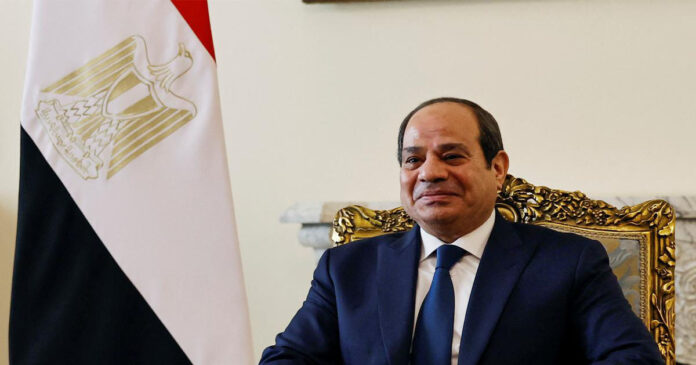CAIRO: Egypt, depleted of funds despite a $3 billion bailout loan from the International Monetary Fund (IMF), is looking to bolster its finances by selling state assets to rich Gulf countries.
According to experts, the agreements could benefit all parties, but unlike previous Gulf aid that was given unconditionally, the new agreements call for reforms.
Cairo is hoping that the infusion of cash will close the “financing shortfall of around $17 billion over the next four years,” as the IMF has warned.
It offers a quick way for countries like Kuwait, Qatar, Saudi Arabia, and the United Arab Emirates to acquire properties, land, and holdings in state companies in the country of North Africa. These countries are seeking to diversify their oil and gas-based economies.
According to James Swanston, an emerging markets economist at Capital Economics in London, “the investments by Gulf governments into Egypt last year helped to alleviate some of the immediate financing issues that Egypt encountered, prior to securing further monies from the IMF.”
The Gulf states have been able to maintain their sphere of influence in the region, at the same time.
Egypt has become an appealing investment for Gulf countries due to a sharp devaluation of its currency and incentives provided by President Abdel Fattah al-Sisi.
However, Sisi’s Gulf friends, who relied on him for assistance after ousting Islamist president Mohamed Morsi in 2013, are no longer willing to provide him free money and are instead calling for economic change and increased transparency.
Gulf buying binge
The Egyptian pound has lost half of its value in less than a year, which has caused the import-dependent nation’s annual inflation rate to reach 26.5% in January.
About $28 billion of Cairo’s $34.2 billion in foreign reserves—a 20% decrease from February 2022—are deposits from affluent Gulf allies.
The nation’s $155 billion in foreign debt has more than tripled in the last ten years.
“A nation like Egypt requires an annual budget of $1 trillion. Do we possess that cash? No. How much of it do we have? No. How much do we have left of it? Sisi emphasised the value of “support from friends, the UAE, Saudi Arabia, and Kuwait” at the World Government Summit this week in Dubai “.
However, as Saudi Arabia’s finance minister Mohammed al-Jaadan has cautioned, the days of unrestricted assistance are finished.
In January in Davos, Jaadan explained that the kingdom will seek “to see improvements” in place of the “direct grants and deposits without conditions we used to give.”
In order to raise the private sector’s participation of the economy from 30% to 65% by 2025, Cairo agreed to privatise important governmental assets as part of the loan arrangement with the IMF.
Gulf countries swept in.
According to a December calculation by the Egyptian business weekly outlet Enterprise, 66 mergers and acquisitions were finalised in Egypt in 2022, more than double the number of deals that were executed in 2021.
military’s significant economic impact
Emirati and Saudi firms had the majority of the stakes in 40 deals.
According to a December article by Enterprise, the sovereign wealth funds of Abu Dhabi and Saudi Arabia “invested over $3.1 billion to acquire large minority holdings” in some of the “strongest enterprises.”
They purchased significant stakes in the two biggest fertiliser companies in Egypt: MOPCO (45%) and Abu Qir Fertilizers Company (41.5%).
Additionally, ADQ purchased a 17.5% stake in Egypt’s Commercial International Bank (CIB) for $911.5 million, making it the largest private shareholder there.
The Saudi firm is in talks to buy the United Bank of Egypt and now controls 25% of the state-founded digital payments provider eFinance.
Cairo is reducing its infamous red tape to attract more mergers, and earlier last month, Prime Minister Mostafa Madbouli announced stock sales in 32 public enterprises.
However, the substantial asset portfolio of Egypt’s incredibly powerful military, which has long played a crucial but covert role in the economy, is still largely off the table for agreements, according to Yezid Sayigh of the Carnegie Middle East Center.
According to Sayigh, military-owned businesses are “so financially opaque” that they cannot be listed on the market.
Of the 32 businesses for sale, only two are in the military. One of these is Wataniya Petroleum, owned by the army, which Abu Dhabi National Oil Company (ADNOC) had explored buying in 2021.
Sayigh attributed the failure of the agreement to the internal financial administration of the military firm, which would discourage any serious investor from committing their funds.

